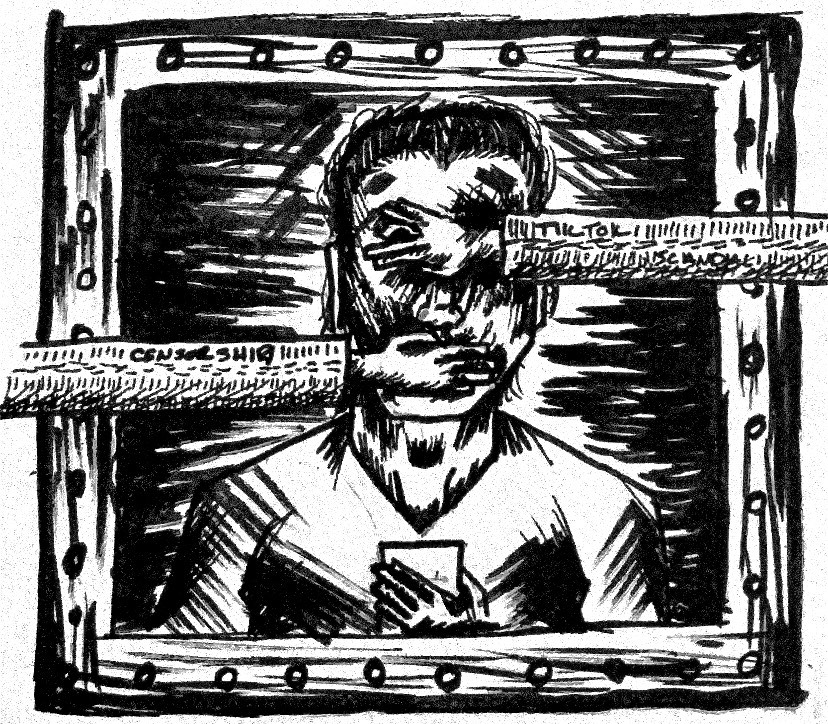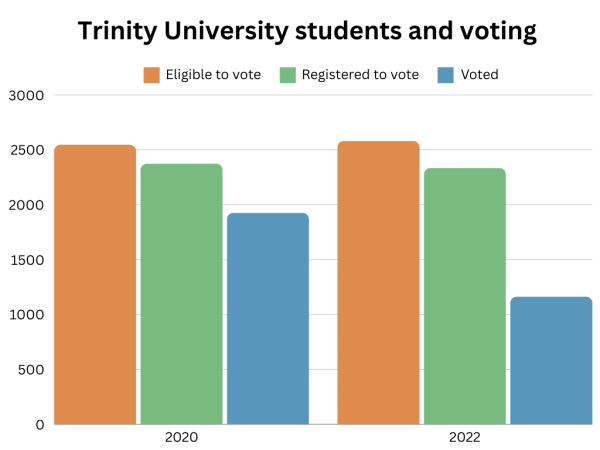Banning TikTok is banning free speech
TikTok CEO Shou Zi Chew testified before Congress on March 23. During his testimony, House Energy and Commerce Committee members inquired about data security and the app’s negative effects on the mental health of children. Chew’s testimony came in the midst of Congress’ plans to allow President Joe Biden to implement a nationwide ban on TikTok.
While acknowledging there are extreme political nuances to the reasons for a TikTok ban concerning relations with China, it is also important to note how this may affect our democracy. Banning TikTok would give the U.S. government increased control over domestic communications and freedom of speech. In place of a ban, there needs to be increased emphasis on technology design ethicists and education on technology usage.
TikTok provides a platform for anyone to voice ideas and to hear about the news that may not make headlines elsewhere. For example, TikTok user @delanieleggett posted a critique of the potential TikTok ban by acknowledging the app’s strength in spreading information rapidly. Many comments offered countless experiences in finding out about news from TikTok and not from American news outlets, most notably news about the Willow Project — an environmentally harmful drilling project approved by the Biden administration.
A well-functioning democracy requires informed citizens to engage in conversation and allows them to be critical of the government. The American people are part of checks and balances too, not just governmental branches. Citizens demonstrate political power and keep their government in check through mechanisms like protesting. In 2020, many Black Lives Matter protests were organized through TikTok. While mainstream media discouraged civil rights activism by spreading negative narratives, TikTok encouraged it, resulting in profound effects on public interest and pressure on politicians to address systemic racism.
According to Pew Research, 26% of adults under 30 in the U.S. get their news from TikTok, and, according to Chew’s testimony, 150 million Americans — approximately 45% of America — use TikTok. It’s hard to miss TikTok’s communicative strength in numbers. It’s also hard to ignore the associated dangers. Fake news travels six times faster than real news, and when almost half of the U.S. population is engaged on one app that utilizes short-form videos to allow rapid communication, it’s easy for misinformation to spread like wildfire.
For society to gain more than it is hurt by TikTok, it’s incredibly important to emphasize media literacy and promote healthy media consumption habits. During my own time in Texas’ public school system, media literacy was touched upon, but not prioritized. To protect against widespread misinformation, media literacy needs to be a much larger focus in the curriculum of today and tomorrow’s schooling.
Returning to Chew’s testimony, one of Congress’ concerns was its negative effects on children’s mental health. As technology quickly progresses, it’s difficult for education and family culture to catch up and to know how to effectively safeguard children from the negative effects of technology. Teachers and parents should be cognizant of screen time, even monitoring the content their children are exposed to, as extremely harmful messages, like videos encouraging disordered eating, self-harm and even suicide, can be found across social media, not just TikTok.
While it is necessary to educate children on healthy relationships with technology and social media, it is partly the app developers’ responsibility to consider their own influence on the developing minds of the next generation. Technology companies’ biggest priority is vying for the attention of users. In doing so, they are intentionally swaying the everyday thoughts and actions of their users, and design ethicists study how this can be done ethically — by preventing the spread of misinformation, respecting a healthy consumption boundary and not trying to maximize profit to the extremes. Currently, design ethicists don’t play a large role in the tech industry. However, as concerns about the negative effects of social media rise, design ethicists cannot continue to go overlooked.
Banning TikTok is not the answer to any of Congress’ concerns. In fact, taking away TikTok is taking away a tool of democracy. It’s important to maintain the means which encourage free speech and conversation to maintain a strong democracy. At once, TikTok looks like both a threat and a tool. However, with the helping hand of education and ethical technology, TikTok can be used for the good of the country.

My name is Rachel Oliver (she/her), and I am a junior economics major and urban studies minor. I am the managing editor, and this is my third year working...

Whattup! My name is Skylar Savarin (she/her/hers), and I am the Visual section editor! I am a third-year double majoring in Human Communication and Art....






